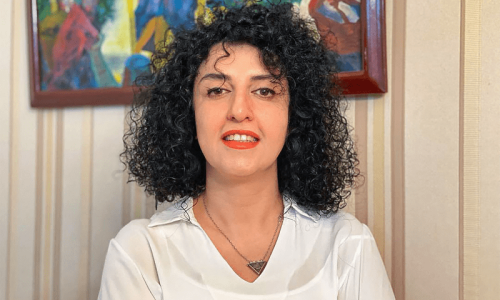SINGAPORE: A landmark charter to be signed by Southeast Asian leaders this month seeks to promote human rights and democracy but doubts remain over how it can bring rogue members such as Myanmar into line.
A final pre-summit draft of the Association of Southeast Asian Nations (Asean) charter drops proposed punitive measures and leaves it up to the 10-member group’s leaders to decide what to do with errant members.
It is the first time Asean – founded 40 years ago as an anti-communist bloc during the Cold War but now incorporating socialist states like Vietnam and Laos – will codify its basic principles and organisational rules.
The Asean secretariat in Jakarta will be given more power and for the first time, there will be a human rights body in a region still enraged by military-ruled Myanmar’s crackdown in September on pro-democracy protests.
Leaders of member countries Brunei, Cambodia, Indonesia, Laos, Malaysia, Myanmar, the Philippines, Singapore, Thailand and Vietnam are scheduled to sign the charter during their summit here on Nov 20.
It commits Asean members “to strengthen democracy, enhance good governance and the rule of law, and to promote and protect human rights and fundamental freedoms”.
It also requires members to keep the region free of nuclear weapons, ease poverty, protect the environment and work toward an integrated market that allows for free flow of goods, services, investments and professionals.
Leaders will hold summits twice a year instead of once.
The role of the Jakarta-based Asean secretariat and the group’s secretary-general will be strengthened.Founded on Aug 8, 1967 in Bangkok, Asean was established through a declaration by founding members Indonesia, Malaysia, the Philippines, Singapore and Thailand.
As such many commitments and decisions are currently not legally binding, and the charter seeks to turn Asean into a rules-based organisation like the European Union.
A regional analyst said it remained to be seen whether the charter will be implemented in earnest.
“The content of the charter is likely to be impressive, especially because Asean’s international legitimacy and reputation are very important,” said Hiro Katsumata of the S. Rajaratnam School of International Studies in Singapore.
“But this does not mean that some of the provisions of the charter will be implemented, especially in relation to human rights and democracy in Myanmar.
“It will be a paper tiger if they do not use it,” he said.
The charter maintains the principle of non-interference in members’ internal affairs, which has been criticised as one reason for Asean’s inability to deal with Myanmar and other problems such as the Asian financial crisis of 1997.
Reaching decisions by consensus, another principle that has bogged down the grouping, was also retained as a bedrock principle.
Some of the strong recommendations by an “eminent persons group” of Asean’s elder statesmen tapped to help prepare the charter have either been watered down or dropped in the final draft.
Written by government-appointed representatives, the draft charter does not mention expulsion or suspension among measures that can be taken against members found in serious breach of the charter.
The Asean elders, among them former Philippine president Fidel Ramos and ex-Indonesian foreign minister Ali Alatas, had recommended expulsion only in exceptional circumstances.
There have been calls for Asean to expel or suspend Myanmar from the grouping following the crackdown.—AFP














































Dear visitor, the comments section is undergoing an overhaul and will return soon.